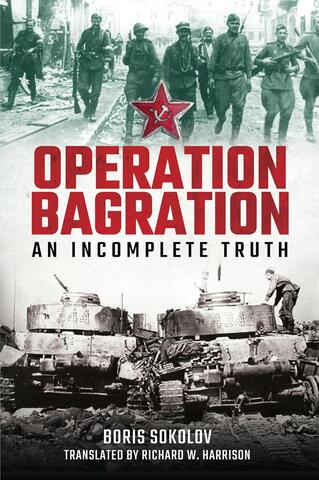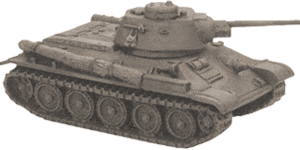Operation Bagration

Operation Bagration, An Incomplete Truth offers an in-depth and fresh take regarding how the Red Army finally defeated Germany's Army Group Center after almost a year of failed prior attempts. Boris Sokolov (through this English language translation by Richard W. Harrison) performs a valuable service with this publication, and does so for several reasons.
Since the Second World War ended a plethora of former German officers have published countless works that, taken together, have helped shape the discourse around any number of critically important events which occured during the Nazi-Soviet war in particular. Today, even casual military enthusiasts likely know that the Red Army's Operation Bagration (the centerpiece of the Soviet summer offensives of 1944) absolutely crushed Germany's Army Group Center. What is obscured in this truth however, was the reason why it was able to do so when prior attempts to accomplish that same goal all had failed.
As highlighted in this book, one big reason the Red Army was able to turn repeated defeat into victory came about because it was willing to analyze its failures and make the needed changes. As shown by Sokolov's work, perhaps the most important step taken by the Red Army was to replace the under-performing Front and Army level leadership involved in the previous failured offensives against Army Group Center, restructure its forces, and create a new plan of attack while providing the means needed to produce operational success. This process included bolstering the Fronts opposing Army Group Center with overwhelming amounts of armor, artillery, and air power. It's that last step that often gets the lion's share of the attention, and it was important. But it wasn't everything.
The conventional wisdom holds that Army Group Center was simply swamped by the aforementioned overwhelming Soviet superiority in men and material. So much so that the only way to have saved the Army Group would have been to begin withdrawing it in the weeks or even days leading up to the onset of Operation Bagration (and as advocated by much of the key German military leaders involved in the Army Group's subsequent defeat). In this book Sokolov comprehensively demolishes that excuse for the failings of the German leadership. In fact, he amply demonstrates that had the Germans attempted to withdraw their forces then their losses may have even been greater (while corresponding Soviet losses would have been lower than in reality). Moreover, he demonstrates what the Germans could have done instead (albeit also laying out why even that option was limited due to contemporaneous events in Normandy during June of 1944).
Operation Bagration thoroughly analyzes this Soviet offensive in Belorussia in the summer of 1944, does a great job of covering the planning of the campaign (from the perspective of the German side as well in terms of trying to counter Soviet plans). As an added bonus Sokolov further fleshes out the likely extent of losses suffered by each army while examining critical errors both sides made during the battle. The lack of maps is a problem, but not enough to hold back my recommendation of this book for my readers.



Post new comment